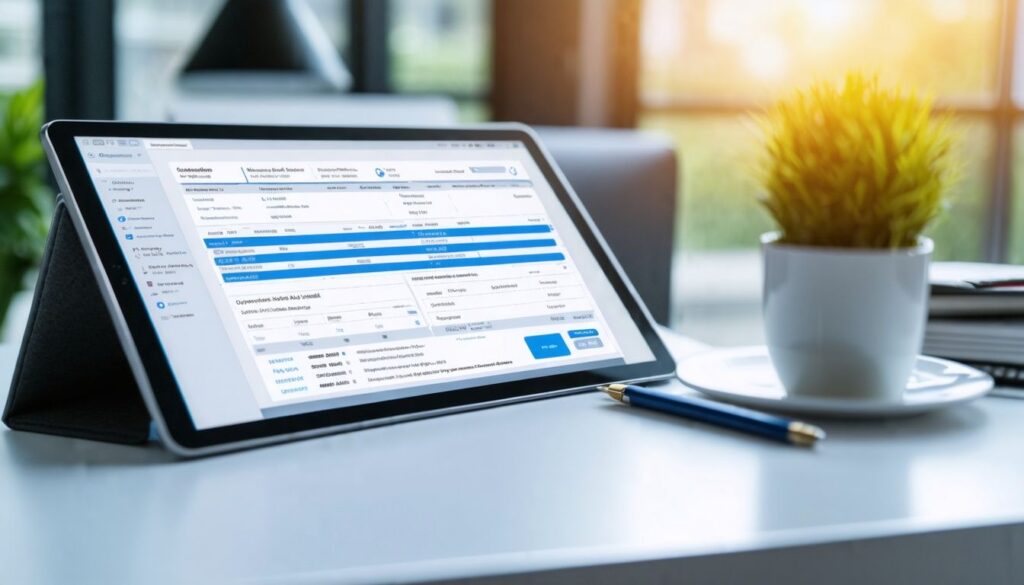Table of Contents
Toggle
Struggling with cumbersome paper-based corporate records? All corporations in Ontario must maintain detailed minute books, which can be time-consuming and inefficient. This article explains how transitioning to digital corporate minute books can streamline your record-keeping process.
Read on to discover the benefits and steps involved in making this important shift.
Key Takeaways
-
- Digital corporate minute books improve efficiency by allowing easy access, searching, and updating of records.
-
- They enhance security with encryption and secure cloud platforms, reducing risks like hacking or data loss.
-
- Transitioning involves scanning physical documents, organizing them digitally, and storing them on a secure platform.
-
- New regulations support digital record-keeping in Ontario, making it easier to meet compliance standards.
-
- Electronic signatures speed up transactions and save costs on paper, ink, and shipping.
What is a Digital Corporate Minute Book?

A digital corporate minute book stores detailed corporate records in an electronic format. This includes company rules, shareholder details, and a paper trail of decisions. Cloud computing and electronic signatures allow fast, efficient record maintenance.
All corporations in Ontario must keep these records. Traditionally kept on paper, the process was slow and inconvenient. Digital minute books save time and effort while providing easy access to important information.
Benefits of Transitioning to Digital Minute Books
Enhanced efficiency saves time and improves productivity. Digital records are easier to access, search, and update.
Enhanced Efficiency and Accessibility
Digital minute books get rid of the need for paper documents. They make transactions faster and end the need for physical meetings. Storing records on platforms like Google Drive or Microsoft means everyone can access the same updated version.
Electronic signatures save time and money on paper, ink, and shipping costs. This system gives more flexibility to lawyers and clients. Remote access to files makes virtual board meetings easier.
You can handle data well while keeping your office free from paper clutter.
Improved Security and Compliance
Storing minute books digitally offers secure access on a cloud platform. It reduces risks like hacking or accidental exposure. New rules now allow for digital record-keeping, which improves both security and compliance.
Digital corporate records boost Governance, Risk, and Compliance work by protecting documents such as certificates of incorporation and shareholder resolutions.
Digital record-keeping makes meeting regulatory standards easier. It allows for automated audits and tracking to reduce human error. Companies gain flexibility while keeping documents secure through encryption and other safety measures.
This shift ensures that your sensitive business information stays protected at all times.
How to Transition Your Business to Digital Minute Books
First, gather all your physical minute books and documents. Next, scan each document and save them in a secure digital format.
Steps to Convert Your Physical Records
Converting physical records to digital minute books can boost efficiency. Follow the steps below to make your transition smooth:
-
- Gather Physical Records
Collect all your company’s paper documents, such as meeting minutes, bylaws, and stock certificates. - Sort Documents
Organize these records by type and date to ensure nothing is missed during scanning. - Scan Records
Use a high-quality scanner to create digital copies of each document. Ensure scans are clear and complete. - Verify Quality
Check each scanned document for legibility and accuracy. Rescan any unclear files. - Organize Digitally
Arrange digital files in folders matching your original organization system for easy access. - Update Missing Information
Fill in any gaps by updating or correcting old records before storing them digitally. - Choose a Secure Platform (Recommended)
Select a secure platform for storing and managing your digital documents safely. - Upload Files
Transfer scanned documents to the chosen platform, ensuring they are correctly labeled and sorted. - Backup Files
Create backups of all digital files on an external drive or cloud storage for extra security. - Storing Original Paper Records Safely
Keep the original paper versions even though the digital version becomes primary.
- Gather Physical Records
Following these steps will help you efficiently convert physical corporate book formats while maintaining compliance and security. Avoid systemic notices
Conclusion
Digital minute books offer quick access and better security. They simplify record-keeping for businesses. Switching to digital will keep your company modern and efficient. Hadri Law can guide you through each step, ensuring a smooth transition.
Contact Hadri Law at 437-974-2374 or book free consultation to streamline your business with our digital corporate minute book services!
